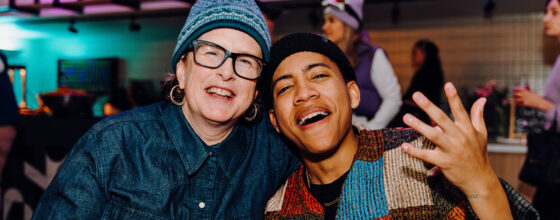10 Things You Probably Don’t Know About Coworking
For both veterans and newbies, space managers and members—here are 10 coworking resources, facts and tips you should definitely know about.
The Coworking Visa lets members of one space work at others for free.
If you are a member of a coworking space anywhere in the world, be sure to ask if that space is a part of the Coworking Visa program. Created to help us do our work on the road, the Visa allows active members of a space to work at other coworking spaces around the world for free for a set number of days. You can view the complete list of participating spaces at the Wiki page or see things visually with the Coworking Visa Map created by Network Hub.
The Coworking Google group is a happening spot—and it’s open to all.
To dive even deeper into the world of coworking and find out what people saying about coworking today, head over to the Coworking Google Group. It’s frequented often and the moderators are some of the best in the business. If you’ve got a question about coworking, you can most likely find it here, in the forum archives or simply by asking.
Coworking has a podcast.
Alex Hillman, co-founder of Indy Hall in Philadelphia, recently started the Coworking Weekly podcast, a podcast for people who build communities. Alex talks about how to create a place where people will work together, inspire and execute brilliant ideas, and “most importantly: give a damn about each other.”
Coworking does NOT have a hyphen.
I am a journalist and I adore AP Style. However, it has one flaw: coworking in this context, with this meaning, isn’t in the guide—but “co-working” is, lumped together with other “co-“ words. So editors default to “co-working.” The biggest difference between the two words is their intention. People who use the word “coworking” tend to share a particular set of values and beliefs that have been collectively determined by a group of people who emerged from San Francisco’s original coworking communities in 2005. They are often highly community-focused. People who use the word “co-working” are likely referring to a more generic version of the concept: two people happening to work alongside one another in the most simple possible sense. While there’s no official entity to enforce the correct use of the word, “coworking” represents far more than its hyphenated cousin. Here is a great piece on the debate.
The word “coworking” as we know it today was coined by Brad Neuberg in 2005.
While coworking still may seem new to some, it is actually celebrating its 10-year anniversary this year. To get you up to speed, this in-depth article written by Brad himself is an absolute must-read.
Your coworking space can be a container for connection and growth.
When you start getting tired of coming to your coworking space and just hacking away at your to-do list on your own, realize that you can get a lot more out of your space by turning to your fellow coworkers to share structure and accountability. Coworking spaces can be so much more than just places to work. Connect with other people, get inspired by joining a collaborative motivation group, and learn how to get out of your own way and do the work you’re called to be doing.
Three great sites to find features and news about coworking:
While there are several, here are my favorites:
- The blog of Coworking.org, created by the founders of the movement in the U.S.
- New Worker Magazine, a publication that highlights stories about, by and for coworkers.
- Deskmag, the original, ultimate magazine about coworking, its people and its places.
Like anything else, remember to choose your space wisely and put intention into what you do while you’re there. You could be on Facebook all day, or you could be creating what you want to see in the world. It’s up to you.
Amy Segreti is a writer and editor who focuses on community, culture and helping independents do the work that makes them come alive. Her offerings include expression coaching, high-level editing, holistic productivity packets, and other things that foster greater connectedness with ourselves and the world. Find her at: http://liveallofyou.com.






